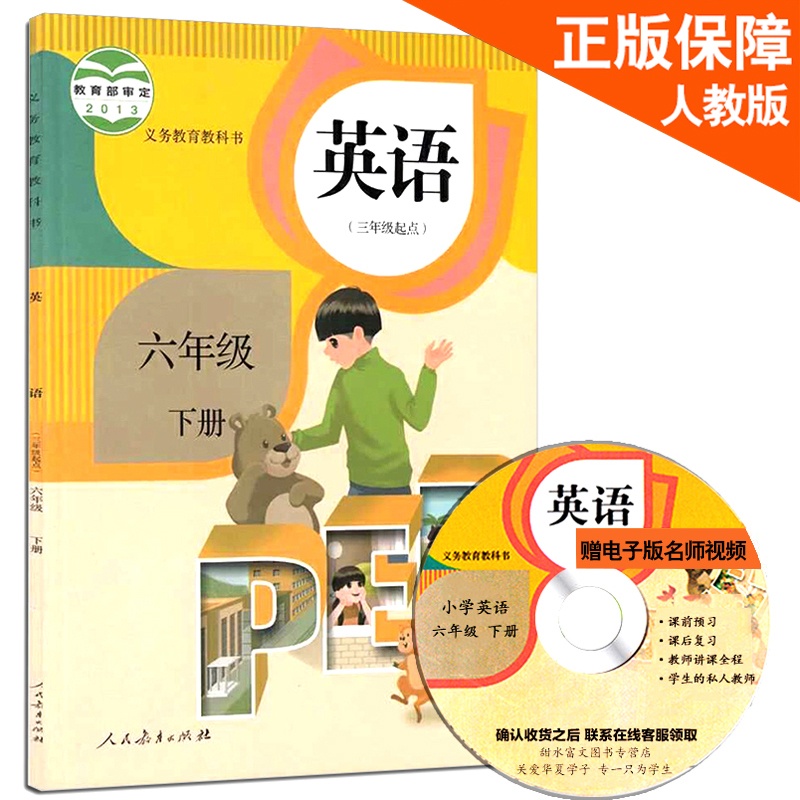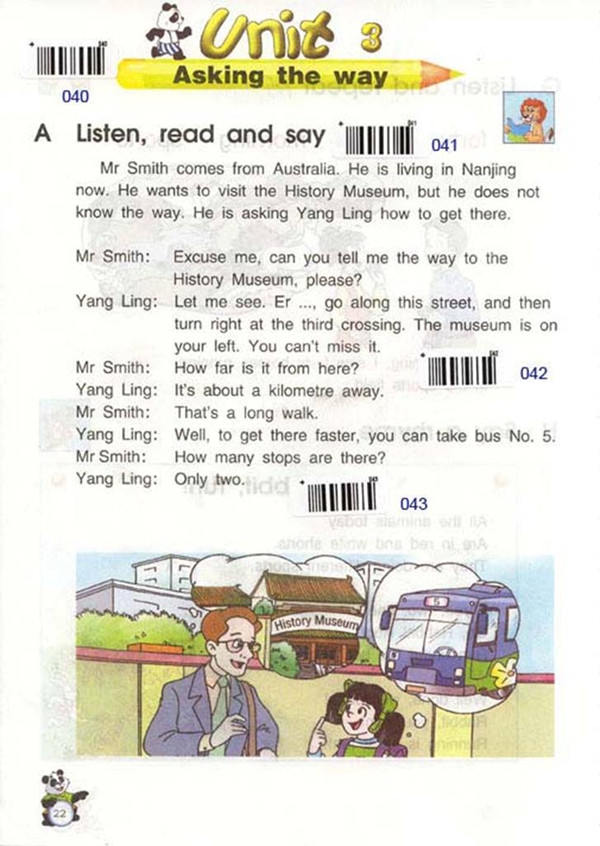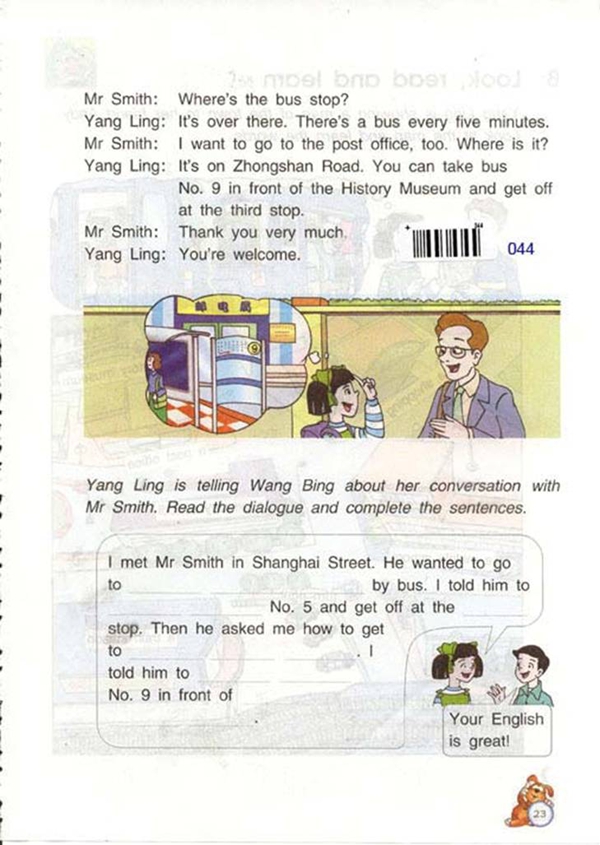【www.zhuodaoren.com--故事】
【篇一】:人教版六年级下册英语Unit3《Last Weekend》教案
教案设计频道小编推荐:六年级下册英语教案 | 六年级下册英语教学计划
《Last Weekend》教案(一)
教学目标
1. 能够理解对话大意,并回答对话下问题。能按照正确的语音、语调及意群朗读对话,并能进行角色表演。
2. 能够听、说、读、写,并在情景中运用句型 How was your weekend? It was good. Did you do anything else? 提问并回答有关周末活动的安排。
3. 能够在语境中理解生词drank的意思,并能正确发音。
教学重难点
1. 重点:运用句型 How was your weekend? It was good. Did you do anything else? 提问并回答有关周末活动的安排。
2. 难点:一般过去时动词词尾的规则变化。
教学过程
一、课前展示
1. 师生相互问候。
2. 教师利用头脑风暴活动激发学生的背景知识,复习相关的动词及动词词组。教师请学生说出周末一般做什么,复习有关周末活动的词汇。如果学生不能够说出很多单词或词组,教师可在课件上出示词组,引导学生描述自己周末一般做什么。
二、情境导入
1. 呈现重点句型
(1) 教师展示日历,请学生回忆上周末做了什么。教师引导学生说出上周末的活动安排,并用一般过去时的句子转述,请学生感受使用一般过去时的语境。师生对话示例如下:
T: How was your weekend? Busy? Happy? What did you do?
Ss: I do my homework.
T: Oh, you did your homework last weekend.
T: What else did you do?
…
(2) 教师说出自己上周末所做的事,并将句子呈现在课件上。课件内容示例如下:
I was very busy last weekend.
I cleaned my room last Saturday morning.
I washed my clothes last Saturday afternoon.
I cooked a meal last Sunday evening.
I watched TV last Sunday evening.
三、自主合作
教师在课件上呈现两组句子,引导学生认真观察,并尝试找出规律。
What do you usually do on weekend? What did you dolast weekend?
I clean my room. I cleaned my room last Saturday.
I wash my clothes. Iwashed my clothes last Sunday.
I cook a meal. I cooked a meal last Sunday.
I watch TV. I watched TV last Saturday.
教师引导学生小结一般过去式动词的规则变化,即一般情况下,在词尾加-ed,大多搭配表示过去的时间短语,如:lastweekend, last Sunday。教师在课件上用红色标注-ed及last。
师生进行即席问答,对话示例如下:
T: Who cleaned your room?
Ss: …
T: Who washed your clothes?
Ss: …
T: Who cooked a meal?
Ss: …
T: Who watched TV?
Ss: …
2. Let’s try.
(1) 教师在课件上出示主情景图,引入Mike的周末活动。询问学生:Whatdo you think of Mike’s weekend? Was it interesting? 教师在课件上呈现日历,使学生初步了解本课要学习的内容涉及过去的时间。
(2) 教师要求学生读题并猜测答案。
(3) 学生读题并猜测答案。
(4) 教师播放本部分录音,学生听后选择正确答案。
(5) 教师校对第一题答案时,请学生说出原因,引导学生推导时间,引出lastweekend。
3. Let’s talk.
(1) 教师播放本部分录音两遍,学生带着问题听录音,听后回答问题:
What did Mike do last weekend?
What did Grandpa do?
How was their weekend?
(2) 游戏:听对话,做动作
教师请学生听对话的录音,当听到描述Mike与Grandpa周末活动及感受的语句时,教师暂停录音,请学生起立,重复读一次,如下所示:
It was good.(起立并复读)
I stayed at home with your grandma.(起立并复读)
We drank tea in the afternoon and watched TV.(起立并复读)
I watched TV, too.(起立并复读)
I watched some children’s shows on TV.(起立并复读)
I cleaned my room and washed my clothes.(起立并复读)
(3) 教师播放课文动画,请学生看完后完成以下连线活动。
(4) 师生核对连线题的答案。
(5) 教师放录音,学生跟读。教师解释单词drank的意义。
(6) 教师播放课文录音,学生逐句仿读。(提醒学生在跟读的过程中注意模仿录音中的语音、语调)
四、检测提升
1. Role Play
师生分角色朗读课文;同桌分角色朗读对话;教师可挑学生上台表演对话。
2. 活动1: 教师在课件上呈现Mike’s grandma周末活动的图片,提问学生:How was Grandma’s weekend? What did she do? Did she do anything else? 组织学生创编新的对话并进行表演。
3. 活动2: 教师与学生对话,提问该生上周末做了什么以及下周末打算做什么。对话后教师示范如何转述该生的话,然后请学生依照示范与同学对话,并尝试转述同学的活动安排。 师生对话示例如下:
T: Hi, Lily. How are you? How was your weekend?
Lily: I’m fine,thank you. It was good.
T: What did you do?
Lily: I went to the park with my father and mother.
T: That’s nice. Didyou do anything else?
Lily: Yes, I cooked a meal and washed the dishes. Iplayed chess with my dad.
T: Wow! You are a good girl. What are you going to donext weekend?
Lily: I’m going tovisit my grandparents.
T: That’s good.
教师转述示例如下:
Lily was happy last weekend. She went to the park withher family. She cooked a meal washed the dishes. She played chess with her dad.She is going to visit her grandparents next weekend.
五、改编对话
和自己的伙伴讨论上周做了什么,可参照课文内容进行改编
《Last Weekend》教案(二)
教学目标
能听,说,读,写短语:cleaned my room, washed my clothes , stayed at home, watched TV .
理解句子:How was your weekend ? It was fine ,thanks . What did you do ? I stayed at home and watched TV.
能运用过去式询问别人上周末的活动,并会对其作出回答。
3. 能够运用新学的内容完成 “Do a survey and report”任务。
4. 在小组的讨论交流中,培养学生英语的综合运用能力。
教学重难点
1.重点:掌握核心单词、词组以及句子。
2.难点:掌握动词过去式的用法及过去式的读音。
教学过程
Step1 : Warm up
T: Good morning, boys and girls,.
I usually clean my room and wash the clothes on weekends.
What do you usually do on weekends?
S1: I usually do my homework and watch TV.
S2: I usually play table tennis. ………..
(设计目的:问候语热身进入英语学习状态,同时用一般现在时态提问,为新课一般过去时做铺垫。)
Step2:Presentation
T: Today we’ll learn Unit.2Last weekend.
1. 日历呈现 Last weekend
(设计目的:直观导入过去时间,上周六和上个星期天。)
2. 图片New phrases: cleaned , washed ,watched,stayed ,
cleaned my room , washed my clothes ,stayed at home ,watched TV.
(
3. 师板书下列单词的原形clean ,wash ,watch, stay,并用I often clean my room /…造句。
师板书以上单词原形并且加ed后,用I cleaned my room /…last weekend 造句。
(设计目的:呈现本节课核心词汇,导入本节课的核心句型。)
4.学生观察两个词组的不同之处.T:eg: cleaned 是clean的过去式,当我们要表达过去发生的事情时,就要用动词的过去式,规则动词的过去式一般在原型后面加ed. cleaned的ed 发/d/. 师带读.
用同样的方式教“stay/stayed at room,wash/washed my clothes,watch/watched TV.”. 注意:washed,watched的ed 发/t/.
(设计目的:通过比较,归纳,让学生获得新知,并学会学习。)
step:3
1.出示课件并让学生自己观察回答问题。
T: How were their weekend?
S1:He cleaned his room and washed his clothes.
S2: She stayed at home and watched TV.
呈现句型:What did you do? 师生问答
(设计目的:让学生观察课件,说出他们做了什么,操练本课核心句型。)
生打开课本P15,听录音跟读。
pair-work T: How was your weekend ? S: It wasfine , thanks.
T: What did you do ? SI :I stayed at home andwatched TV.
Listen to the tape of Let’s learn and follow it.
(设计目的:让学生听课本标准发音,并跟读,培养听说能力。)
Let’s chant,边做动作边chant:
What did you do last weekend ? I cleaned my room.
What did you do ? What did you do ? I washed myclothes.
What did you do ? What did you do ? I stayed athome.
What did you do ? What did you do ? I watched TV. (注意:do 的过去式did ).
(设计目的:利用chant对新知进行渗透并为下面学习做好铺垫。)
5.Do a survey and report :学生利用表格,进行问卷调查。
操练句型—How was your weekend?
--- What did you do?
(设计目的:通过调查汇报,获得信息反馈,知晓学生对新知掌握的情况。)
Step 4. 达标检测
一、写出下列动词的过去式。
1. wash_____ 2. stay_____3.watch______ 4.clean______ 5.do______
二、读一读,选一选。
( )1.你想问同学周末过得怎样,可以说:______.
A. How was your weekend ? B. Howold are you ?
( ) 2.你想问同学有多高,可以说:_______.
How heavy are you ? B.How tall are you ?
( )3.你想告诉同学:你周末过得很好,可以说:____.
A. I’mtaller than you . B. It was fine.

( ) 4.你想问同学上周末做了什么?可以说_____.
A. What did you do last weekend ?B. What are you going todo next weekend ?
( )5.你想说:它比我们俩加起来还高,可以说:_______.
It’s taller thanboth of us together. B. It’s taller than theelephant.人教版六年级下册英语uint3故事。
(设计目的:适当地给予学生课后练习,是对已学知识的巩固,新课的延伸。)
【篇二】:人教版六年级下册英语Unit1《How Tall Are You》教案
教案设计频道小编推荐:六年级下册英语教案 | 六年级下册英语教学计划
《How Tall Are You》教案(一)
教学目标
1、能听懂会说认读本单元关于形容词比较级的单词。
2、能听、说、读、写Let’s learn中黑体部分的内容和Read and write中要求的内容。
3、能用目标语言完成本单元的任务型活动。
4、能学说Chant一首和Song一首。
教学重难点
1、能听、说、读、写单词及短语: heaiver thinner longer bigger smaller句型: How heavy are you ?I’m 48 kg. I’m thinner than you , and shorter .
2、能够听、说、读Let’s learn、 Let’s talk中的单词和句子。
3、了解Story time 、Good to know等部分的内容。
教学过程
1、热身(Warm-up)
(1)师生共唱Let’s sing部分的歌曲。
(2)教师请学生唱自己改编的歌曲,大家一起欣赏。
(3)请快速读出卡片中闪现的单词的比较级,并拼写。
(4)反义词连一连。
2、复习(Preview)
Let’s check
教师放录音,让学生听后圈出正确的练习。
(1)I’m shorter but stronger. I often do sports on weekends.Who is the man? (2)I’m younger, so I eat smaller apples.Who is the girl?
(3)A: How tall are you?
B: I’m 182 cm.
A:Oh! You are 16cm taller than me!Who os the taller man? (4)A: How heavy is your brother?
B:He’s 60 kg.you are thinner than him!Who is the thinner boy?
3、新课呈现(Presentation )
Warm up
Read and write
Let’s read
(1)教师呈现本课时挂图,向学生提出问题说,这是两个不同的季节,那么他们有什么不同的地方呢?The weather is ...,然后请学生尝试解答这一问题。 getting warmer。The day is ...The night is ...
(2)听录音,让学生找出新的单词和句子师生一起讨论解决。
(3)教师问:
Who is in this story do you know?
Little Duck and Old Tree are in the story.
?引导学生回答:
underline (划出) new words.
.并领读。
It is getting lower and lower.
(变得越来越低)
(4)教师再问:What does a sperm whale eat? What does a killer whale eat? What can they do?让学生根据课文回答问题。
Match and say
让学生两人一组自习看图连线,然后用举行进行表述。
4、巩固延伸(Consolidation and extension)
(1)学生两人一组模仿Let’s read的内容。
(2)听录音后跟读课文。
5、作业(Homework)
写一段题为“My favouriter…”的文章。要求内容包括动物的体重、身高、长度 失误或其他特别的技能。
《How Tall Are You》教案(二)
教学目标
1、能力目标:学生能够对身高进行问答;学生能够掌握四会单词和句子;学生能够用比较级对一些事物或人进行比较。
2、知识目标:
(1)能够掌握本课时的四会单词:younger, older, taller, shorter, longer。 (2)能够掌握本课时重点句型:How tall are you ? I am ......metres. I am taller. You are shorter\taller than me. You’re younger\older than me.
3、情感目标:培养学生积极学习英语的兴趣,能积极参与课堂。
教学重难点
1、重点:学习单词:younger, older, taller, shorter, longer;掌握句子:How tall are you ? I’m 1.61 metres.I’m taller. You’re older than me,too.
2、难点:正确使用句子“......is.....than.....”进行各种比较。
教学过程
一、Preparation
1、Greeting:Nice to meet you again. How are you today?
2、Let’s chant
Tall, tall, tall, who is tall?
Tall, tall, tall, I am tall.
Short, short, short, who is short?
Short, short, short, I am short.
Big, big, big, whose(谁的) eyes are big?
Big, big, big, her eyes are big.
Small, small, small, whose eyes are small?
Small, small, small, his eyes are small.
Do some actions,review the words:tall、strong、short 等。
二、Presentation
1、教师请几位高矮胖瘦不同的学生到台前来,让学生分辨Who is tall /strong/old/young/short?,然后让学生回答。
教师指着比较高的A和比较矮的B问: Who is tall ? S :A. T: A is taller than B , 用动作来示意学生,帮助学生理解。然后出示taller的单词卡片,示范读taller.
2、教学单词taller,边说边做动作,学生跟做。开火车合拼单词,小组比赛快速熟练的拼读。帮助学生用tall+er来记忆。
3、教师用同样的方法教学其他四个四会单词stronger 、older、 younger、 shorter。
4、将五张单词卡放在一起请学生认读。男女比赛谁读错或不会读。
5、观察五个单词,有什么相同之处?然后简单解释,当两个人相比较时,使用比较级,比较级就是在形容词词尾加er.
6、教师领读几遍后,请学生根据实际情况说句子,比如“I’m taller than ….I’m short than ….”等。教师要及时鼓励表述好的学生。
7、教师把一高一矮的学生叫他们站起来,然后说You’re taller than your classmate! 引导学生做出相应的回答:Yes! 教师问,How tall are you ?学生答I’m 160cm
8、教师和另一个学生对话作示范,How tall are you ?I’m 150cm tall. I’m taller than you. I’m 4cm taller than you ..学生分组开火车练习,最快的为优胜组。
三、Practice
1、拼读比赛:教师让学生5—6人一组,告诉他们要进行拼读单词的竞赛。教师将单词中的字母组合删除,让每组学生代表填写。
2.教师带领学生继续进行比赛,打乱组成单词的字母顺序,让学生们在小组中重新排列,组成单词。
四、Production
1.每名学生尝试用句型“I’m ---- than ----“来描述自己。至少三句话。
2.小组内学生互相交流。
3.Let’s chant。
五、Progress
1.Let's play 学生小组玩游戏。
2.选择几个小组展示。
Homework
1.抄写本节课所学的五个四个单词。
2. 询问他人年龄、身高、体重。
(运用句型How old/tall/heavy are you? )
板书设计
Unit 1 How tall are you
A Let's learn
I'm taller than you.
tall-taller short –shorter
young-younger old-older
strong-stronger
【篇三】:人教版六年级下册英语Unit6《A Farewell Party》教案
教案设计频道小编推荐:六年级下册英语教案 | 六年级下册英语教学计划
《A Farewell Party》教案
教学目标
1、能够听、说、认读Let’s read部分的对话并正确回答对话后的问题。
2、能够读懂并会书写简单的英语请柬。
教学重难点
1、本课时的重点是能听、说、认读对话,能用Can表述会做什么,并且能书写简单的英语请柬。
2、本课时的教学难点是学生会表述能做什么并能正确书写英语请柬。
教学过程
1、Warm-up
Sing the song “I Went on a Holiday”
2.Preview
教师出示学生的体检表,提问:
How tall are you now ?
How tall were you in Grade 1 ?
How heavy are you now ?
How heavy were you at seven years old ?
教师根据体检表中的记述判断学生说的是否正确。教师再问:
This is our last term .You’ve known many teachers andclassmates .Who’s your best friend ? ……
3.Presentation
Let’s read
(1)教师说:Boys and girls ,you are students in Grade 6 now .You will leave soonand study in a middle school .So we are going to have a farewell party nextweek .教师板书A farewell party 领读几遍,提问:
What shall we bring for the party ?
启发学生回答:food ,drinks ,gifts ……
(2)教师继续问:Would you like to give performances at the party ?
What can you do ?
回答:I can sing \dance 、、、
(3)让学生分组朗读对话,回答教师的问题,并提出不理解的句子。
(4)教师放Let’s read 对话的录音,学生分角色朗读对话。
5. Read and tick or cross
(1)教师说:You can invite your parent to the party .
You can invite your teachers ,too.然后,展示一张很大的英语请柬,说Look ,This is aninvitation .can you read it ?学生齐读请柬上的内容。
(2)教师指导学生完成判断正误的练习。

(3)教师发给每位学生一张画纸,让他们制作英语请柬。
6. 巩固和延伸
(1)做本单元配套练习
(2)听第一部分录音
(3)掌握四会单词及句子
(4)让学生制定欢送会节目单。
【篇四】:2015新版PEP小学英语六年级下册Unit 3 知识归纳
Unit 3 Where did you go?
一.必背词汇:
去钓鱼 Labour Day 劳动节
去野营 mule 骡子
去游泳 Turpan 吐鲁番
动词词组 ride a bike--- rode a bike 骑自行车 could (can的过去式)能 及其过去式 ride a horse--- rode a horse 骑马 till 直到
我的脚受伤 beach 海滩;沙滩
照相 basket 篮;筐
buy gifts--- bought gifts 买礼物 part 角色
吃新鲜的食物 licked (lick的过去式)舔
从…摔倒 laughed (laugh的过去式)笑
二.语法:
? 一般疑问句,把did提前
— Did you help your parents clean the room ? ( 当句子变为一般疑问句,动词应还原)
— Yes , I did ./No, I didn’t .
? 特殊疑问句 : 疑问词+did+主语+V原形+其它?
—Where did you go on your holiday? 假期你去了哪里?
—I went to Xinjiang. 我去了新疆.
—What did you do on your holiday?你假期干了什么?
—I sang and danced. 我即唱了歌又跳了舞.
—How did you go there? 你怎样去的?
—I went by train. 我坐火车去的.
—你什么时候去的?
—I went last Monday. 我上周一去的.
三.重点句型:
---I fell off my bike and hurt my foot. 怎么了?我从自行车上摔下来了,并且弄伤了我的脚。
你还好吧? 现在没事了。

在寒假期间你去了哪儿?
它看起来像头骡子。
你们去过吐鲁番了吗? 是的,去了。
海南离这儿很远。你们怎么去的?
---We went there by plane. 我们坐飞机去那儿的。
听上去不错!改天我能看看你的照片吗?
8. Come and look at my photos from the Labour Day holiday. 来看我劳动节假期的照片。
9. ---Who did you go with? ---My parents and my uncle. 你和谁一起去的? 我父母和我叔叔。
10.I saw lots of grapes and ate lots of mutton kebabs. 我看见了许多葡萄,吃了许多烤羊肉串。
11.---How was the beach? ---It was beautiful. 沙滩怎么样? 它很美。
12.Max sat in a basket on the front of the bike. 马克斯坐在自行车前面的(车)筐里。
13.We took pictures of the beautiful countryside. 我们拍了美丽乡村的照片。
1
【篇五】:六年级下册Unit3知识点归纳
Unit 3 Where did you go?
一.必背词汇:
去钓鱼 Labour Day 劳动节
去野营 mule 骡子
去游泳 Turpan 吐鲁番
动词词组 ride a bike--- rode a bike 骑自行车 could (can的过去式)能 及其过去式 ride a horse--- rode a horse 骑马 till 直到
我的脚受伤 beach 海滩;沙滩
照相 basket 篮;筐
buy gifts--- bought gifts 买礼物 part 角色
吃新鲜的食物 licked (lick的过去式)舔
从…摔倒 laughed (laugh的过去式)笑
二.语法:
? 一般疑问句,把did提前
— Did you help your parents clean the room ? ( 当句子变为一般疑问句,动词应还原)
— Yes , I did ./No, I didn’t .
? 特殊疑问句 : 疑问词+did+主语+V原形+其它?人教版六年级下册英语uint3故事。
—Where did you go on your holiday? 假期你去了哪里?
—I went to Xinjiang. 我去了新疆.
—What did you do on your holiday?你假期干了什么?
—I sang and danced. 我即唱了歌又跳了舞.
—How did you go there? 你怎样去的?
—I went by train. 我坐火车去的.
—When did you go? 你什么时候去的?
—I went last Monday. 我上周一去的.
三.重点句型:
---I fell off my bike and hurt my foot. 怎么了?我从自行车上摔下来了,并且弄伤了我的脚。
你还好吧? 现在没事了。
在寒假期间你去了哪儿?
它看起来像头骡子。
你们去过吐鲁番了吗? 是的,去了。
海南离这儿很远。你们怎么去的?
---We went there by plane. 我们坐飞机去那儿的。X k B 1 . c o m
听上去不错!改天我能看看你的照片吗?
8. Come and look at my photos from the Labour Day holiday. 来看我劳动节假期的照片。
9. ---Who did you go with? ---My parents and my uncle. 你和谁一起去的? 我父母和我叔叔。
10.I saw lots of grapes and ate lots of mutton kebabs. 我看见了许多葡萄,吃了许多烤羊肉串。
11.---How was the beach? ---It was beautiful. 沙滩怎么样? 它很美。
12.Max sat in a basket on the front of the bike. 马克斯坐在自行车前面的(车)筐里。
13.We took pictures of the beautiful countryside. 我们拍了美丽乡村的照片。
【篇六】:2015新版六年级下册英语unit3测试
2015新版六年级下册英语unit3测试 一.按要求写单词
1. eat (过去式)_________ go (过去式)_______ 2. ride (过去式)_______ buy (过去式)_______ 3. can (过去式)_______ like (过去式)_______ 4. good (反义词)________ photo (同义词)______ 5. took (原形)_________ swim (现在分词)_______ 6. gift (复数)_________ run (现在分词)_______ 二.汉英互译
1. Labour Day __________ lots of ___________ 2. eat fresh food ___________ summer holiday __________ 3. every weekend __________ slept __________ 4. last month _________ years ago __________ 5. 去野营 ___________ 去钓鱼 ___________ 6. 照相 ___________ 骑马 ___________
7. 伤了脚 ___________
本文来源:http://www.zhuodaoren.com/juqing668398/
推荐访问:人教版六下册英语课件 人教版六年级英语教案